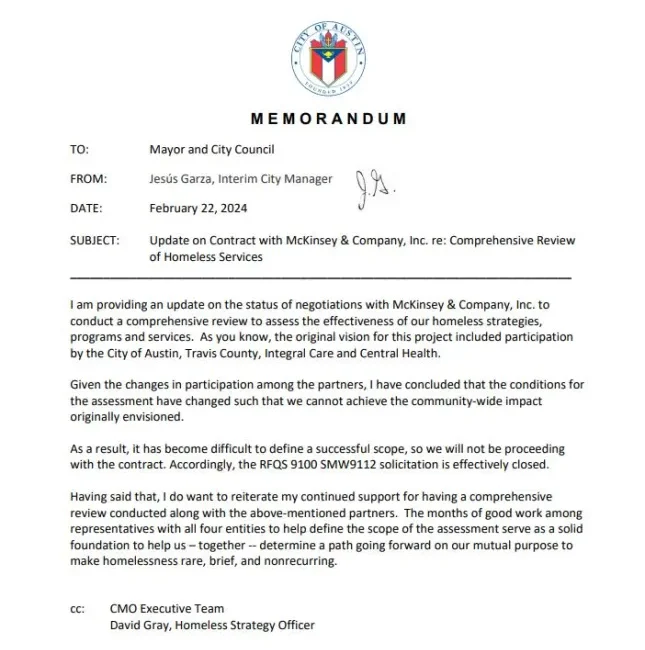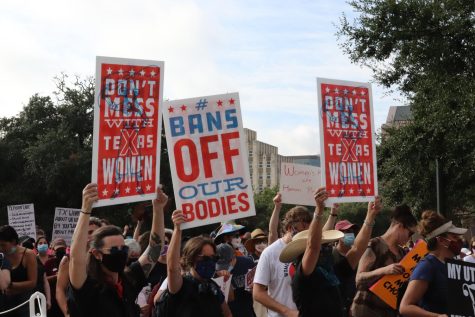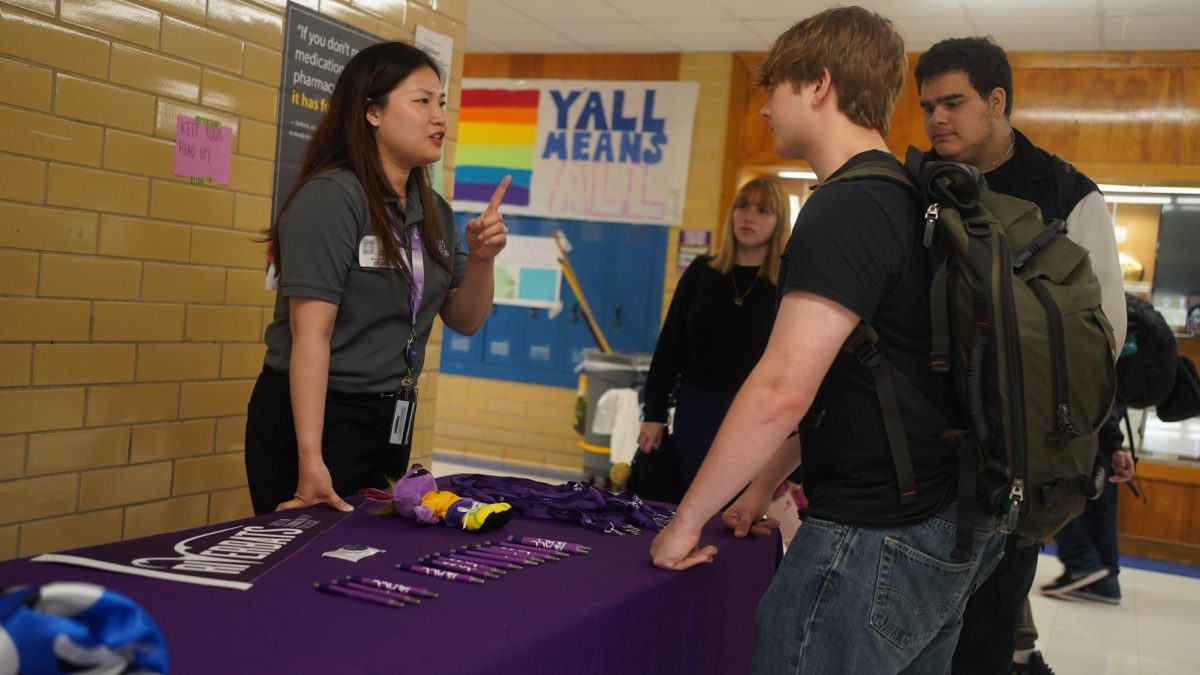While homelessness in Austin has been a prevalent challenge for decades, earlier this month Travis County commissioners voted not to participate in a review of services for people experiencing homelessness. The plan was to hire McKinsey Company for a $2 million review of homeless services in Austin. The city would pay $1 million while Travis County, Integral Care and Central Health would pay the rest.
The City of Austin said that they would not continue with the contract with the third-party global consulting firm McKinsey & Company, because they have “concluded that the conditions for the assessment have changed such that we cannot achieve the community-wide impact originally envisioned.” Two issues arose, that led to the cancellation of the review: Travis County commissioners felt the money could be better spent, so they elected not to participate in the study, and there were ethical concerns of moving forward with the consulting firm due to an investigation by The New York Times, investigating McKinsey’s role in providing sales advice to drug-makers who manufacture oxycontin.
I could not in good conscience pay to have them [McKinsey & Company] do an important analysis of the city and the county and other operations.
— Travis County Commissioner Brigid Shea
“It’s their pattern and their history of unethical behavior,” Commissioner Brigid Shea told KVUE. “I could not in good conscience pay to have them do an important analysis of the city and the county and other operations.”
The review on services provided to the homeless is a vital step for both people, and nonprofits, to ensure adequate resources are being provided. One nonprofit based here in Austin, called The Other Ones Foundation (TOOF) offers emergency shelter, work opportunities and supportive services to people experiencing homelessness in Austin. According to director of communications Max Moscoe, the organization focuses on “transitioning Austin’s homeless neighbors into an engaged community through shelter, opportunity and support.”
The nonprofit advocates for the voices of the homeless and are constantly committed to ensuring they receive what they need and ask for.
“We are consistently asking people experiencing homelessness what they want, and what they need,” Moscoe said. “These people are the real experts on homelessness and thus should be equal partners within the homeless response system.”
These people [the unhoused] are the real experts on homelessness and thus should be equal partners within the homeless response system.
— Max Moscoe, director of communications, The Other Ones Foundation
Travis County, as well as the State of Texas, have both been deeply supportive of the work of TOOF, supporting the organization with a major investment to continue the growth of shelter capacity in Austin. While the county and the state are taking steps to support nonprofits, Moscoe believes that there is more to be done.
“While a robust homelessness response including emergency shelter, outreach and diversion is important, it is ultimately ineffective if there are no places to house the people we are supporting,” he said. “We must continue to hear marginalized voices by inviting them to the table and working on a response to homelessness in our community.”
With a similar mindset as Moscoe, sophomore Alexis Fredine, who lives in a neighborhood close to a major road and therefore regularly sees homeless people in nearby areas, believes the focus should be on long-term solutions.
“We need to focus more on affordable housing and job readiness instead of only temporary things like food,” they said. “There needs to be so much more infrastructure to not only help the homeless but get and keep people out of homelessness.”
Homeless people experience a lot of judgment and criticism.
I think the homeless are portrayed as scary, dangerous, addicts, or like its their fault; however, they are just people who are struggling, and we need to have more compassion for them.
— sophomore Alexis Fredine
“I think the homeless are portrayed as scary, dangerous, addicts, or like its their fault,” Fredine said. “However, they are just people who are struggling, and we need to have more compassion for them.”
In addition to facing criticism, the homelessness population in Austin, and all over the world, are harmed by inadequate distribution of services. The canceled review intended to survey what was available, and Commissioner Brigid Shea told KUT that the county agrees that there needs to be a review of how each entity is serving the homelessness population but felt this was not the right approach.
In 2021 the county dedicated $110 million to build affordable housing with half of its American Rescue Plan Act funding, and most of the contracts are still being negotiated. Shea felt that since very little had been set into motion, the review might not have had its intended effect.
“We don’t see where it makes any sense for McKinsey to evaluate the effectiveness of this because there is nothing there yet,” she said.
Also noting the apprehension of moving forward with this particular consulting firm, Shea considered the number of concerns.
I think the current system and the way we approached it has not met those objectives. — interim City Manager Jesus Garza
“We certainly don’t have any disagreement with the idea of working with our governmental partners to really look at how we can improve our homeless services,” Shea told KUT, “but I don’t think there is an appetite for joining this [agreement] with this consultant.”
During a Feb. 7 Public Health Committee meeting interim city manager Jesus Garza spoke about the homeless in Austin.
“It is our intent to be able to serve the poor and vulnerable in a more effective way,” he said. “I think the current system and the way we approached it has not met those objectives.”
Board of Managers chair Ann Kitchen told KUT while the contract isn’t moving forward, their commitment to align and coordinate its efforts has not changed.













